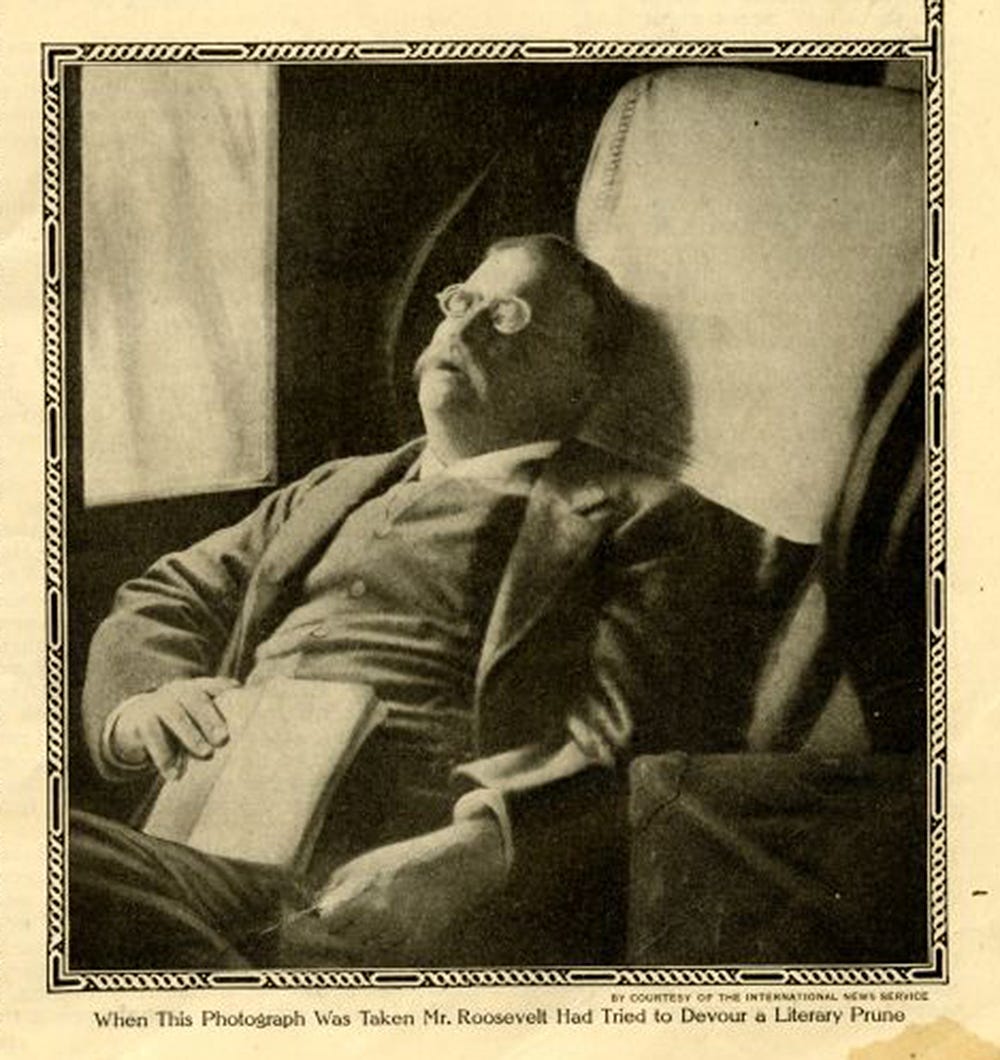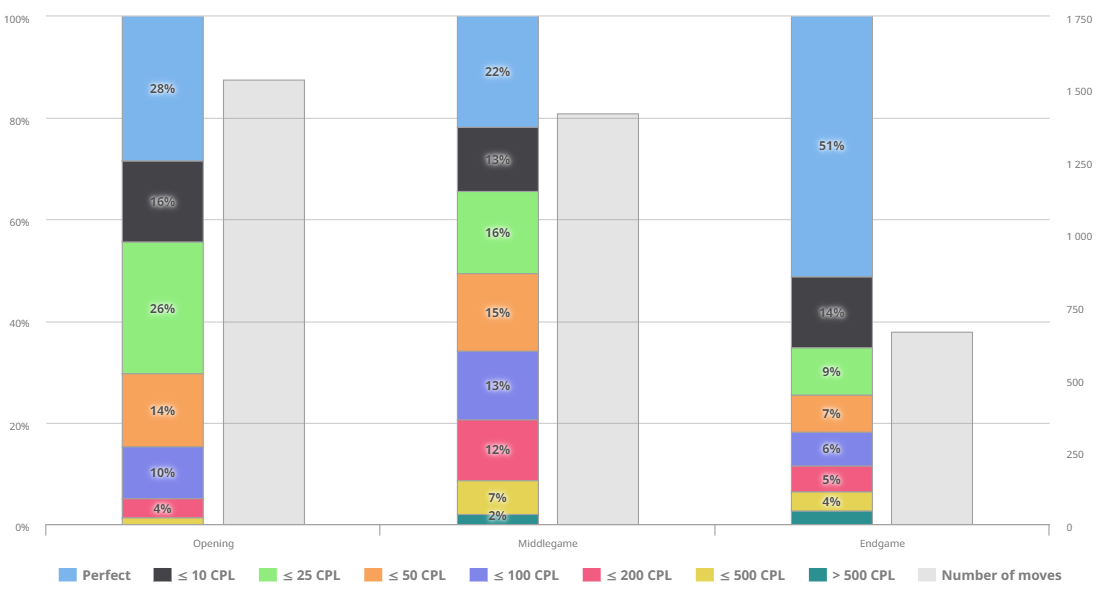Welcome to the 184 new subscribers who have joined since the last newsletter. The newsletter now goes out to 2,266 chess fans.
If you haven't already subscribed you can join for free. New subscribers get a 50-page pdf with the 14 annotated games from Capablanca’s classic book ‘Chess Fundamentals’.
"Keep ignoring feedback and life will keep teaching you the same lesson."
— James Clear
I’m now back at the steering wheel after a short break. A big thanks to Jonathan, who has been posting his blindfold training program every Monday for the last 9 weeks. Remember to follow his blindfold chess podcast:
The reason for the intermezzo is that my wife gave birth on the 15th of September to a little boy. Everything has gone well and we are now getting used to keeping an eye on 4 kids. As you might expect having a newborn means less sleep..
Some time ago I took this picture of my coffee pots. The first on the left I got when I studied at University, the one in the middle when I met my wife, and the last one when we got our first son. You can try to imagine my coffee equipment now 8 years later…
Now seems to be a good point to stop and reflect a little about my chess. I might be a little short on time for the next while, but I do not want to neglect my hobby.
Many adults complain about the lack of time after they get kids, sometimes I do so myself. But I only have to remember this quote from one of my favorite historians, David McCollough. The quote is about Theodore Roosevelt, who had no less than 6 children:
“Once upon a time in the dead of winter in the Dakota Territory, Theodore Roosevelt took off in a makeshift boat down the Little Missouri River in pursuit of a couple of thieves who had stolen his prized rowboat. After several days on the river, he caught up and got the draw on them with his trusty Winchester, at which point they surrendered. Then Roosevelt set off in a borrowed wagon to haul the thieves cross-country to justice. They headed across the snow-covered wastes of the Badlands to the railhead at Dickinson, and Roosevelt walked the whole way, the entire 40 miles. It was an astonishing feat, what might be called a defining moment in Roosevelt’s eventful life. But what makes it especially memorable is that during that time, he managed to read all of Anna Karenina. I often think of that when I hear people say they haven’t time to read.”
― David McCullough, 1933-2022
In his Autobiography Roosevelt answered a question about what a presidents should read:
Now and then I am asked as to “what books a statesman should read,” and my answer is, poetry and novels—including short stories under the head of novels. I don’t mean that he should read only novels and modern poetry. If he cannot also enjoy the Hebrew prophets and the Greek dramatists, he should be sorry. He ought to read interesting books on history and government, and books of science and philosophy; and really good books on these subjects are as enthralling as any fiction ever written in prose or verse. Gibbon and Macaulay, Herodotus, Thucydides and Tacitus, the Heimskringla, Froissart, Joinville and Villehardouin, Parkman and Mahan, Mommsen and Ranke—why! there are scores and scores of solid histories, the best in the world, which are as absorbing as the best of all the novels, and of as permanent value. The same thing is true of Darwin and Huxley and Carlyle and Emerson, and parts of Kant, and of volumes like Sutherland’s Growth of the Moral Instinct, or Acton’s Essays1
So in short — no more bad excuses from me!
But before I restart my chess journey and study. It seems like a good time to take stock. Look at the feedback. And find a good starting point.
For that Lichess has an under-appreciated little tool called Chess Insights.
It is a tool that is comparable with Aimchess or Insights on chess.com. The amazing thing is that it is FREE! On chess.com you need a Diamond membership to access their insights page and Aimchess cost 7.99 $.
Chess Insights best feature, in my opinion, is its many filters. It gives users the opportunity to organize the data in the way they wish. Lichess is even working on a new data tool called Chess Tutor that is currently being tested.
Here follows a look into my games over the last 6 months as an inspiration:
Black and White
I often play up when I play online, which results in more losses. It seems I’m losing slightly more games with White than I use to — 50.2% overall vs 44.1% the last 6 months —with Black it is about the same.
White
Queen’s Pawn Game
It looks like I do best when I play 1. d4 2. Nf3 (Zukertort). Not so well with sidelines and the London system. I think the best thing to do here is to keep playing the 1. d4 2. Nf3 3. g3-system I have played together with the classic Queen’s Gambit.
To-do
- Focus on 1. d4 2. Nf3 3. g3-system
- Find an answer to the Benoni and Chigorin variation
Black
Overall it looks like I get the French Defense most often and it is an opening I’m doing well in. I have tested out the Sicilian, but the results are not as good as with the French. Against d4 I’m having worse results.
The French
Within the French, it seems I get the exchange and advance variation most often. I need to take a close look at my play against the advance since it seems to be where I’m struggling the most. Also the MacCutcheon variation in the French Classical seems to be a weak point for me. I seem to be very solid against French Defense: La Bourdonnais Variation and the French Knight Variation.
To-do
- Find an alternative to the MacCutcheon
- Work on the advance and exchange variation
Against 1. d4!
I’m really surprised by how few games I face with d4. In general, I do not do very well against it especially the 1. d4 2. Nf3. I have had some moderate success with the Albin Countergambit.
Best performance ratings are in the Queen's Gambit Declined: Charousek Variation (1.d4 d5 2.c4 e6 3.Nc3 Be7) and Queen's Gambit Declined: Orthodox Defense (1.d4 d5 2.c4 e6 3.Nc3 Nf6 4.Bg5 Be7 5.e3 O-O 6.Nf3 Nbd7).
To-do
- Create a proper opening rep. with 1. d4 Nf6
Tactical awareness
The diagram below shows, quite interestingly, that I have had 465 tactical chances from equal positions or 0 to -1 positions and I only found the tactics in around 70% of them. I probably turn off my tactical radar when it is equal and I just stick to my strategic plans. But when I’m behind or ahead I’m much more likely to find the tactical move. That is something I need to work on.
To-do
- Work on actively looking for tactics in equal positions.
Accuracy
The chart shows my accuracy in equal positions divided into opening, middlegame, and endgame. It seems like my endgame play is pretty good with half of my moves being perfect. In the middle game, I struggle. 34% of the moves are giving my opponent a +1 advantage or more.
To-do
Focus on 1. d4 2. Nf3 3. g3-system
Find an answer to the Benoni and Chigorin variation
Find an alternative to the MacCutcheon
Work on the advance and exchange variation
Create a proper opening rep. with 1. d4 Nf6
Work on calculation and middlegame plans
Actively look for tactics in equal positions
I hope that this newsletter will serve as an inspiration to you to look at your own data and make adjustments, so you will not repeat the same mistakes again and again.
/Martin
https://www.laphamsquarterly.org/roundtable/theodore-roosevelt-reading-list
















Y'know, I've seen the "Chess Insights" button there forever. I've clicked on it. I've even played with the filters. But that's all it's been: playing around. This opens my eyes to actually *using* it as a tool to better identify and improve my weaknesses. Thanks for the idea!